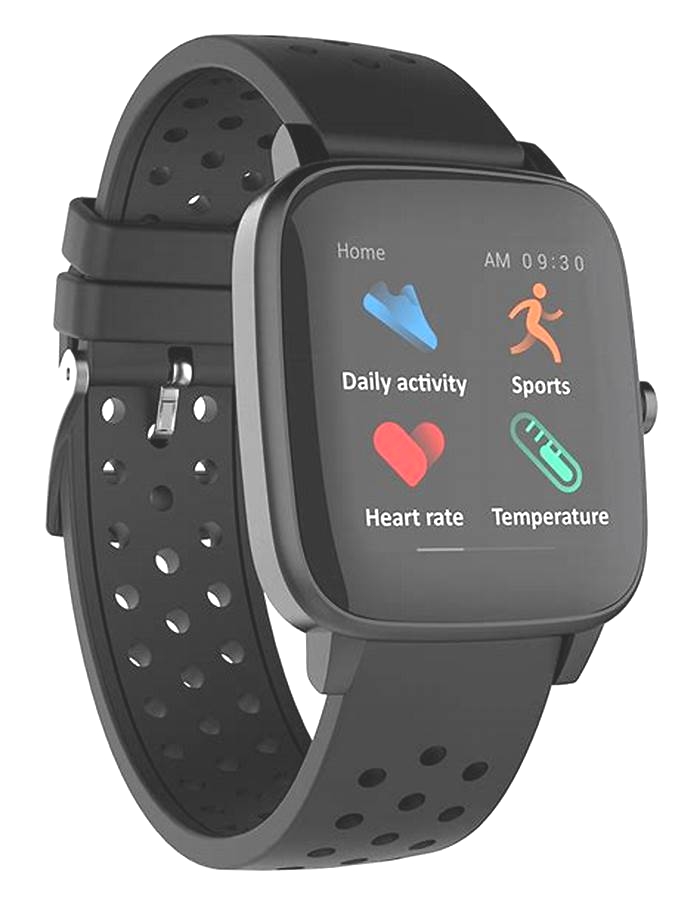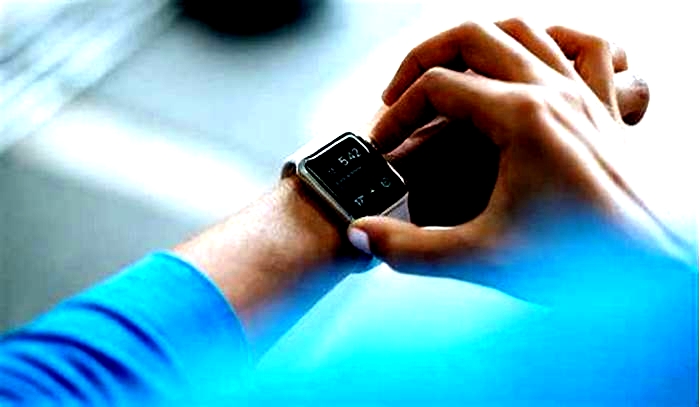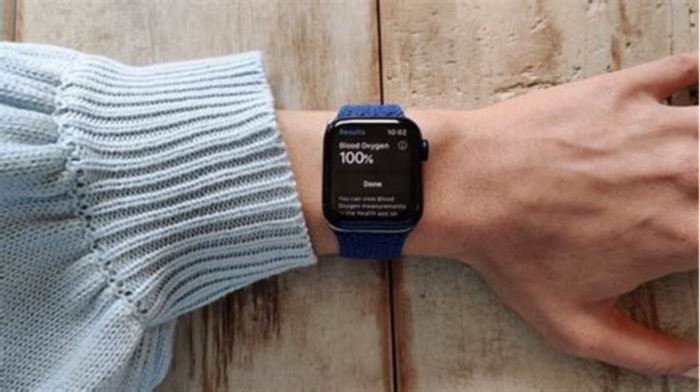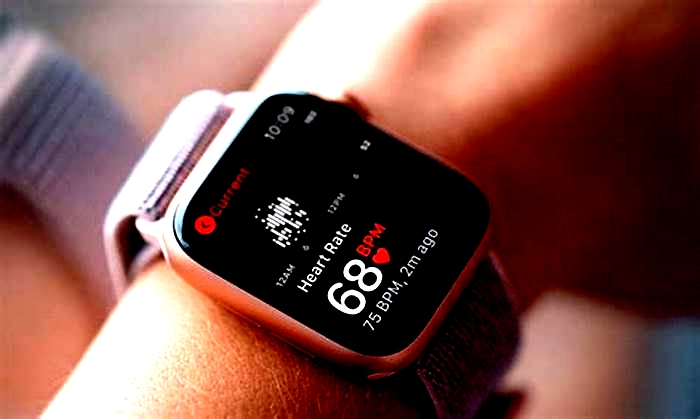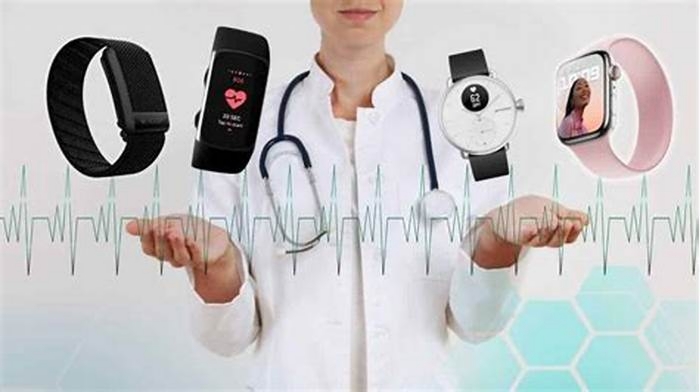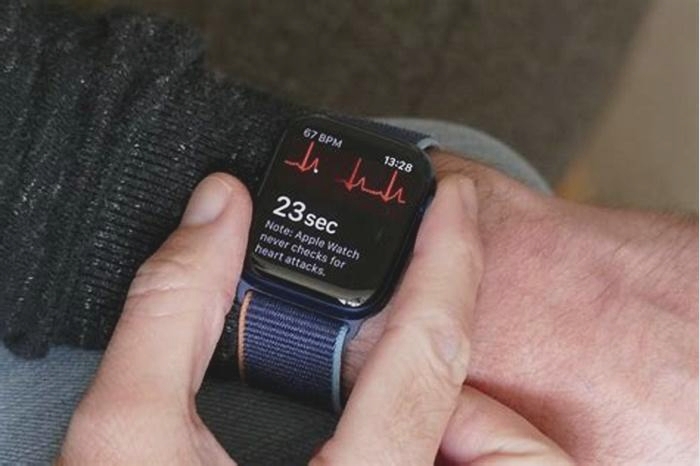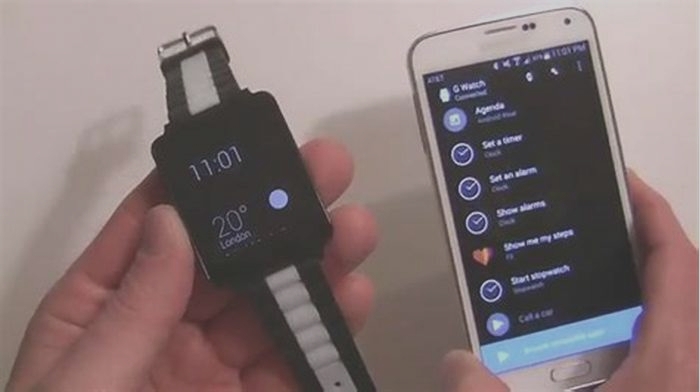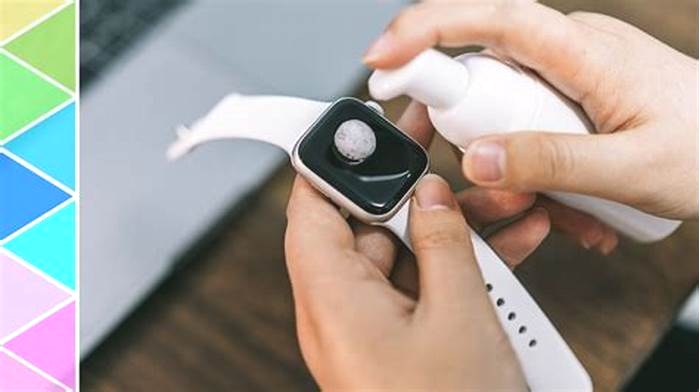The Easy Way to Use Your Smartwatch to Monitor Your Stress Levels
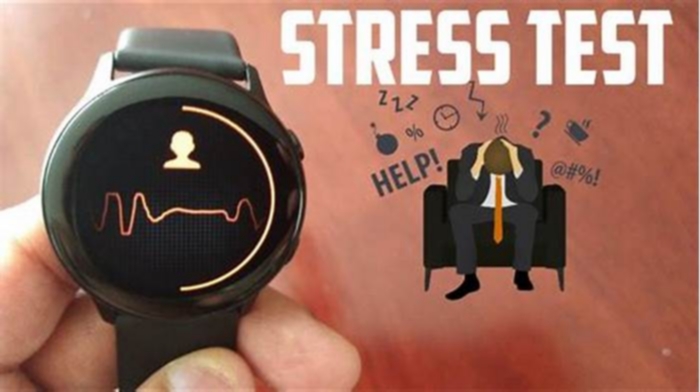
How Does Stress Monitor Work in a Smartwatch? Is it Reliable?
These days, people take too much stress about happenings in their daily lives. And hence, monitoring the stress level is essential to stay healthy and calm. Most smartwatches and fitness bands come with stress monitors, which measure your stress levels regularly. In this article, lets find out how the stress monitor works on a smartwatch and its reliability for everyday use.
Related | How Smartwatches Measure Your Heart Rate? Check Accuracy
What is Stress Level Monitoring? Is it Important?
For starters, stress is the feeling of mental or physical tension, which negatively affects a persons mind and well-being. It is a normal human reaction that often arises due to challenges or difficulties.
Headache, tiredness, disturbed sleep schedule, higher than normal blood pressure, aging, heart illness, obesity, etc., are common symptoms of stress. If a person is under stress for a long time, it can affect the mind and body, causing health issues.
There are two types of hormones Adrenaline and Cortisol which mediate stress in our body. When stress is high, the Adrenaline hormone floods into the veins, causing the heart rate and blood pressure to increase suddenly. The blood inflow in the muscles maximize the bodys glucose level. The pupil of the eyes also gets wider.
The WHO mentions stress as Epidemic of Twenty-first Century, which is true in real life. Measuring the stress level can be beneficial as it makes you aware to keep calm and relax your body to avoid health issues.
How Does Stress Monitor Works in Smartwatches or Fitness Bands?
A few years back, fitness trackers used to measure stress levels based on sudden elevation in heart rate. This technique was not very accurate as the heart rate can go up and down while doing any activity or workout.
These days, most smartwatches use Heart Rate Variability (HRV) technology to evaluate stress. HRV is the measure of the variation of time between each heartbeat. This variation is controlled by bodys autonomic nervous system (ANS) which automatically regulates our heart rate, blood pressure, breathing, and digestion.
In simple words, the HRV is not the same as heart rate (BPM), but it is the difference in the time interval between each heartbeat. A higher HRV is good while a lower HRV indicates fatigue, thirst, and stress.
On the other hand, some smartwatches from the premium segment come equipped with dedicated sensors to detect the stress level.
For instance, the FitBit Sense comes with an Electro Dermal Activity (EDA) sensor, which detects stress through electrical changes in the sweat level of our skin. For the same, you need to place your palm over the watch dial for two minutes.
It also considers other health stats like heart rate, sleep, and workout activity to check how much the stress affects your body.
How Do Smartwatches Help In Relieving Stress?
All the smartwatches having Stress Monitoring feature come with a Breathing Exercise mode. This feature helps relaxing the body through long breathing sessions, which eventually brings down the stress levels.
If the watch supports automatic stress monitoring, it will automatically notify you when you have a high stress level. It will also prompt you to do breathing exercises to lower the stress.
Some watches even let you select the duration, and intensity of the breathing exercise. So whenever you feel stressed, you can use these simple breathing exercise with inhale and exhale prompts to calm your body.
Alternatively, you can do some basic activities like watching feel-good content, drinking water, taking a walk, etc., to relieve the stress. This will help you calm your mind in stressful times.
Can you Rely on Smartwatch to Measure Stress Levels? How Accurate it is?
With technology evolving constantly, smartwatches have adopted new stress measurement techniques like HRV and EDA. That being said, most budget smartwatches are equipped with HRV and not EDA due to the cost factor.
According to some reports, HRV can detect stress with 90 per cent accuracy with the technology improving day by day. Hence, the stress level data on smartwatches can be considered reliable to a fair extent.
Popular Smartwatches with Stress Monitoring Feature
There are several smartwatches in the market that you can consider buying for accurate stress monitoring. Here is the list of premium smartwatches that offer better accuracy and sensors:
Samsung Galaxy Watch 4
The Samsung Galaxy Watch 4 comes with Samsungs new BioActive sensor. It can show you body composition like Body Fat, Body Water, Fat Mass, etc. It also detects stress levels continuously and notifies when you need a break or breathing exercises.
Check here: Samsung Galaxy Watch 4 Bluetooth
Apple Watch Series 7
The Apple Watch Series 7 comes with an ECG sensor that accurately detects the heart rate and SpO2. It also features a meditative breathing option that shows beautiful animation for breathing exercises to help keep the body calm.
Check here: Apple Watch Series 7 GPS
Fitbit Sense
Fitbit Sense is an advanced health-oriented smartwatch with dedicated sensors for each health metric. It has a dedicated EDA sensor for stress monitoring with really good accuracy. Besides, it can also measure heart health and skin temperature.
Check here: Fitbit Sense Advanced Health Smartwatch
Garmin Vivosmart 4
Garmin Vivosmart 4 is a slim fitness tracker with premium health tracking features. It has a wrist-based Pulse Oxygen sensor that detects blood oxygen saturation accurately. It also features stress tracking and a relaxation breathing timer to control stress levels.
Check here: Garmin Vivosmart 4 Smartwatch
Wrapping Up Stress Monitoring on Smartwatches
This was all about how Stress Monitor works in a smartwatch and whether it is accurate enough to rely upon. Besides, weve also mentioned some popular smartwatches with stress tracking feature. Anyways, what are your thoughts on these stress wearables? Let us know in comments.
How Can You Measure Stress?
Excessive stress is associated with health complications. Are there ways to accurately measure stress levels?
Although stress is a natural and inevitable part of life, many people feel that theyre experiencing excessive stress levels.
However, theres no objective way to define excessive stress. Many people find it hard to express or quantify their stress.
There are a few methods for measuring stress. These look at certain biomarkers in other words, physiological responses to assess how your body responds to stress.
There are two components of stress:
- Stress triggers: the factors that cause stress
- Stress response: how you respond to stress triggers on an emotional, biological, or cognitive level
When we talk about measuring stress, we tend to be talking about measuring triggers or responses. Measuring stress triggers can include taking stock of the major life changes youve been under.
However, everybody responds to triggers differently. Events that might be very stressful for one person can be easily manageable for the other.
The following ways to measure stress look specifically at measuring your stress response. These methods of measuring stress look at your bodys physiological responses. They record stress biomarkers such as your heart rate and brainwaves to assess how stress affects your body.
Heart rate variability (HRV)
Heart rate variability (HRV) analysis is a common way to measure stress. It involves recording the variation in time between consecutive heartbeats. In other words, it doesnt just look at how fast your heart is beating, but how the time period between heartbeats changes.
HRV is controlled by your autonomic nervous system (ANS). The ANS includes your sympathetic nervous system responsible for fight-or-flight response and your parasympathetic nervous system, which takes charge when youre relaxed.
When youre chronically in fight-or-flight mode, your ANS is unbalanced. This imbalance can show up in your HRV. HRV is lower when youre in fight-or-flight mode and higher when youre in a calm state. High HRV is
A healthcare professional can check your HRV via an electrocardiogram. Personal wearables, such as chest strap monitors, can also measure HRV.
Brainwaves
Electroencephalography (EEG) measures brainwaves. Research suggests that brainwaves can be an accurate way to measure stress response.
In particular, a
Mental health practitioners who use neurofeedback can measure brainwaves and train the brain with positive feedback when the EEG finds that treatment goals are being met.
Hormonal testing
Two hormones associated with stress are adrenalin and cortisol.
When youre stressed, your body will produce adrenalin to give you energy to handle your stressor. Its a part of the fight-or-flight response, and its why you might feel restless when anxious.
In times of stress, your body also produces cortisol, which assists with the fight-or-flight response. Cortisol is a hormone produced by the adrenal gland.
Cortisol is also involved in regulating:
- blood sugar
- inflammation
- metabolism
Your cortisol naturally ebbs and flows during the day. Neither cortisol nor adrenalin is bad, but when cortisol is chronically high, it can harm your health. For instance, it can lead to the following:
- acne
- difficulty concentrating
- fatigue
- headache
- high blood pressure
- irritability
- mood problems
- muscle weakness
- weight gain
Lab tests can assess your cortisol levels via urine or blood samples. You can purchase home cortisol testing kits, which usually involve testing cortisol through urine.
The Perceived Stress Scale (PSS)
The Perceived Stress Scale (PSS) is a questionnaire that was developed in 1983. Its used to assess the amount of stress that you feel youre under.
Unlike the above-mentioned methods of measuring stress, this tool relies on your own perception of your stress. The questions dont focus on the events youre currently experiencing, but your emotional and mental state.
It could be helpful to use the PSS to check in with yourself. Its available in PDF format.
What are stress trackers?
There are at-home devices that claim to track stress. Usually, these devices track stress by measuring your heart rate and heart rate variability. Many fitness trackers, including smartwatches and chest strap monitors, have stress analysis features.
Are wearable stress trackers accurate? Its not easy to say. Theres a lack of research into whether these are accurate. However, because these trackers only use one variable typically your heart they dont give a complete picture of your bodys stress response.
Stress is a part of life, and its natural to feel stressed from time to time. However, excess stress can be harmful to your health.
When is stress considered excessive? Theres no objective answer to this question. However, if youre experiencing physical symptoms of stress, or if you feel unable to relax, it may be an indication that you should speak with a healthcare professional.
Similarly, if you feel like you cant cope or feel overwhelmed most of the time, you might benefit from speaking with a doctor or a therapist.
Symptoms of unhealthy stress levels
The symptoms of high stress levels can vary from person to person.
The symptoms can include:
Although these issues can be caused by other factors, its worth speaking with a doctor or a therapist if you believe that stress is causing physical or emotional symptoms.
There are a number of ways to manage stress in a healthy way.
- Try exercise: Find a form of exercise or movement that you enjoy. Yoga, in particular, is associated with
stress reduction , but other forms of exercise can also be helpful. - Practice deep breathing exercises:
Research from 2018 suggests deep breathing can activate your parasympathetic nervous system, putting you in a relaxed state. - Limit screen time: Excessive screen time can harm your mental and emotional health, according to
2018 research . Try to find breaks throughout the day to walk away from your screens. - Spend time with others:
Research from 2020 suggests that spending time with others can help you feel less lonely and stressed. If you dont have loved ones nearby, join classes, religious services, or meetup groups to get a regular dose of human interaction. - Try meditating regularly: Research shows that meditation can
lower stress and improve overall well-being. If youre not sure where to start, try a guided meditation. - Spend time in nature: Being in nature can reduce stress and improve your emotional state, according to
2020 research . Try walking in a local park or natural space, taking up an outdoor sport, or simply eating a meal outside every day. - Find support: If a particular stressor feels difficult to cope with, consider joining a relevant support group. For example, if you were recently bereaved, a grief support group might help you process your emotions.
If youre often stressed, you might find it helpful to speak with a therapist. Anybody can benefit from quality therapy it can help you build resilience to stress and process stressful events in a supportive environment. If the cost therapy is a concern for you, consider other affordable therapy options.
Stress is a natural part of everyday life. Numerous methods of measuring stress, such as heart rate variability analysis and hormonal testing, could help you find out whether youre excessively stressed.
However, you dont need to measure your stress levels in order to justify reaching out for help. If you feel that you could benefit from handling stress better, consider speaking with a therapist or using stress management techniques to improve your well-being.

